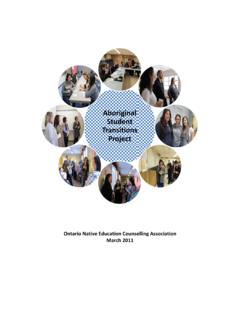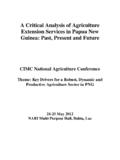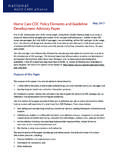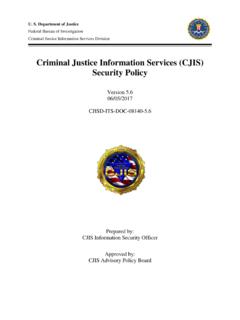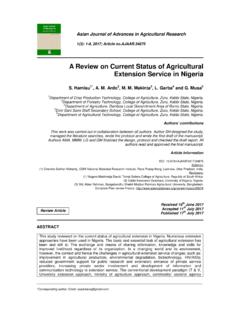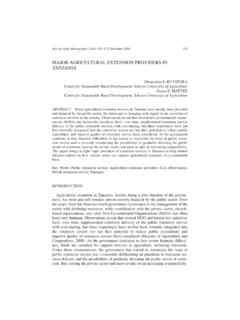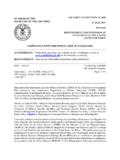Transcription of STATEMENT OF THE INDIAN - Home - ONECA
1 I INDIAN CONTROL OF INDIAN EDUCATION policy Paper PRESENTED TO THE Minister of INDIAN Affairs and Northern Development BY THE national INDIAN Brotherhood/ Assembly of First Nations ii 1972 by national INDIAN Brotherhood/ Assembly of First Nations ALL RIGHTS RESERVED. THIS BOOK OR ANY PART THEREOF MAY NOT BE REPRODUCED WITHOUT THE WRITTEN PREMISSION OF THE ASSEMBLY OF FIRST NATIONS First Printing 1973 Second Printing 1976 Third Printing 2001 Additional copies of this book are available from: ASSEMBLY OF FIRST NATIONS 1 NICHOLAS STREET, SUITE 1002 OTTAWA, ONTARIO K1N 7B7 613-241-6789 (Telephone) website.
2 Iii PREFACE This STATEMENT on Education has been prepared for the Working Committee of the Negotiating Committee of the national INDIAN Brotherhood to be used as a basis for future common action in the area of education. The issues which have been considered were designated by the Special Committee of the Executive Council of the national INDIAN Brotherhood, at Yellowknife, , May 17, 1972. This STATEMENT has been compiled from provincial and territorial associations' papers or statements on education, and from discussions of representatives of the associations at the Education Workshop, June, 1972.
3 It is a STATEMENT of the: philosophy, goals, principles, and directions which must form the foundation of any school program for INDIAN children. In August, 1972, the General Assembly of the national INDIAN Brotherhood accepted the policy in principle, subject to certain additions. The final draft was approved by the Executive Council, November, 1972. It was presented to the Minister of INDIAN Affairs and Northern Development on December 21,1972. In a letter to the President of the national INDIAN Brotherhood, dated February 2,1973, the Minister gave official recognition to INDIAN CONTROL OF INDIAN EDUCATION, approving its proposals and committing the Department of INDIAN Affairs and Northern Development to implementing them.
4 Iv ACKNOWLEDGEMENTS This paper is based on the many statements prepared on behalf of, the Chiefs and Band Councils by the Education Directors of the provincial and territorial INDIAN organizations over the past years. Acknowledgement is made of the important contribution which the Education Directors have made to this joint policy STATEMENT . Thanks are also due to the national INDIAN Brotherhood's Education Committee which worked to find the common denominators in all of the provincial statements. Members of this Committee are.
5 John Knockwood and Peter Christmas UNION OF NOVA SCOTIA indians Barry Nicholas UNION OF NEW BRUNSWICK indians Larry Bisonette, representing indians OF QUEBEC ASSOCIATION Louis Debassige and Roland Chrisjohn UNION OF ONTARIO indians Verna Kirkness MANITOBA INDIAN BROTHERHOOD Rodney Soonias FEDERATION OF SASKATCHEWAN indians Clive Linklater INDIAN ASSOCIATION OFALBERTA Teddy Joe and William Mussell UNION OF BRITISH COLUMBIA INDIAN CHIEFS David Joe YUKON NATIVE BROTHERHOOD v James Wah-shee INDIAN BROTHERHOOD OF THE NORTHWEST TERRITORIES Dr.
6 Jacqueline Weitz national INDIAN BROTHERHOOD A special word of thanks is offered to them for their persistence and patience in correcting the several draft copies which preceded this final approved paper. On behalf of all, I wish to extend particular thanks to Dr. Weitz for her excellent co-ordination of the work, meetings and editing of this history-making document. And finally, the initiative of the Executive Council in launching this endeavor deserves public recognition. George Manuel, President national INDIAN Brotherhood.
7 Ottawa, Ontario December, 1972 vi TABLE OF CONTENTS iii iv INDIAN PHILOSOPHY OF 1 STATEMENT OF 2 ROLE OF 3 5 FEDERAL 5 LOCAL 6 REPRESENTATION ON PROVINCIAL/TERRITORIAL SCHOOL 7 9 CURRICULUM AND INDIAN 9 Nursery Schools and 11 Junior and Senior High 11 Vocational 12 Adult 12 Post-Secondary 13 Alcohol and Drug 14 LANGUAGE OF 14 CULTURAL EDUCATION 16 vii 18 TRAINING PROGRAMS FOR TEACHERS AND 18 Native Teachers and 18 Non- INDIAN Teachers and 19
8 INDIAN 20 FACILITIES AND 21 SUB-STANDARD EDUCATIONAL 21 NEW EDUCATIONAL 21 EDUCATIONAL 21 21 Day 22 Group Homes 23 Denominational 23 24 24 PROBLEMS OF 25 SUMMARY OF INDIAN POSITION ON 27 CONCLUDING 32 33 1 STATEMENT OF THE INDIAN PHILOSOPHY OF EDUCATION In INDIAN tradition each adult is personally responsible for each child, to see that he learns all he needs to know in order to live a good life. As our fathers had a clear idea of what made a good man and a good life in their society, so we modern indians , want our children to learn that happiness and satisfaction come from: pride in one's self, understanding one's fellowmen, and, living in harmony with nature.
9 These are lessons which are necessary for survival in this twentieth century. Pride encourages us to recognize and use our talents, as well as to master the skills needed to make a living. Understanding our fellowmen will enable us to meet other Canadians on an equal footing, respecting cultural differences while pooling resources for the common good. Living in harmony with nature will insure preservation of the balance between man and his environment which is necessary for the future of our planet, as well as for fostering the climate in which INDIAN Wisdom has always flourished.
10 We want education to give our children the knowledge to understand and be proud of themselves and the knowledge to understand the world around them. 2 STATEMENT OF VALUES We want education to provide the setting in which our children can develop the fundamental attitudes and values which have an honored place in INDIAN tradition and culture. The values which we want to pass on to our children, values which make our people a great race, are not written in any book. They are found in our history, in our legends and in the culture.
